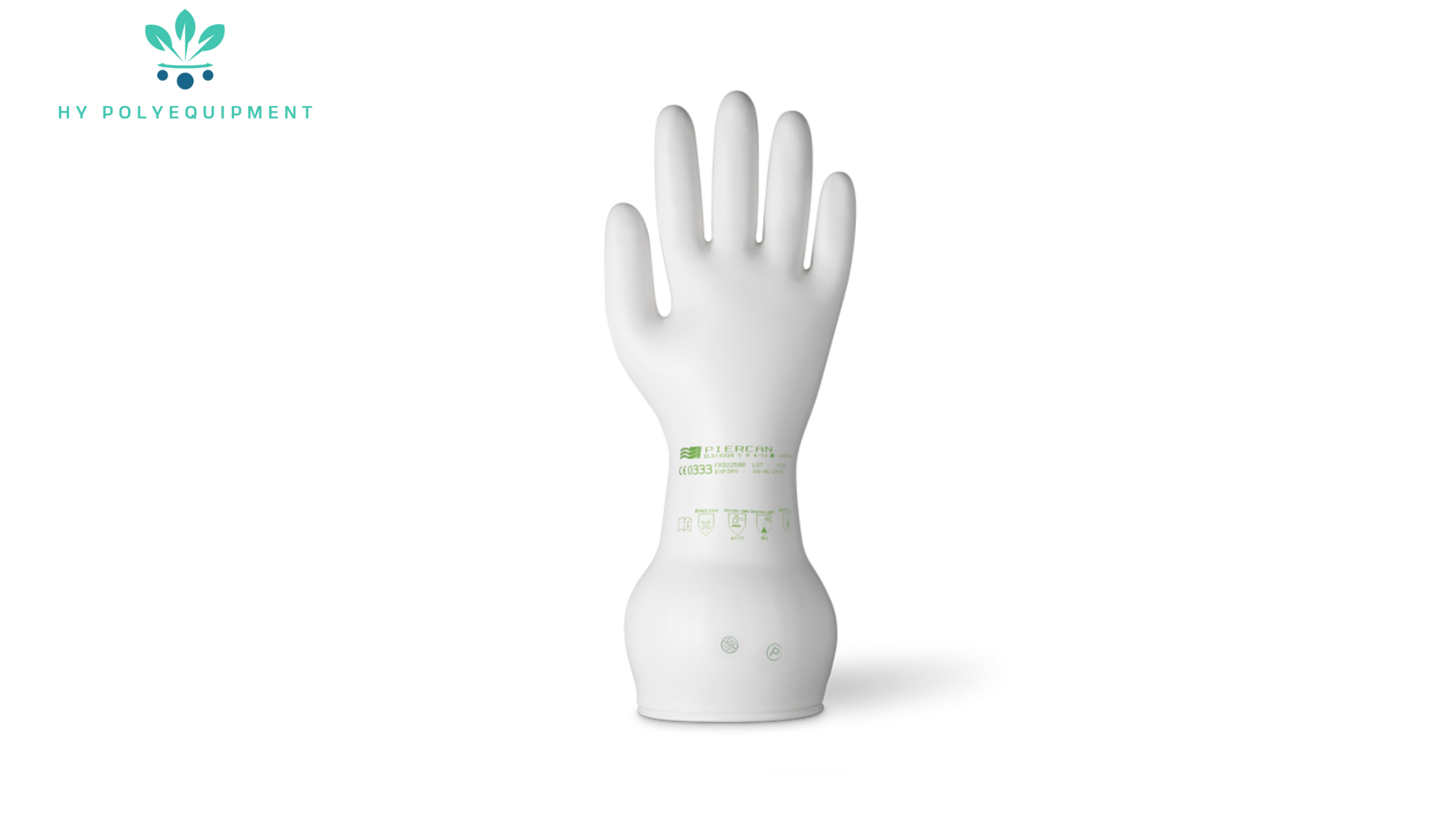The Ultimate Guide to Isolator Gloves: Types, Uses, and Benefits

Strong 8k brings an ultra-HD IPTV experience to your living room and your pocket.
Isolator gloves are a crucial component in industries where maintaining sterile conditions and handling hazardous materials are essential. They provide a barrier between the user and the environment, ensuring both safety and contamination control. This guide explores the types, uses, and benefits of isolator gloves, offering insights into why they are indispensable in various sectors.
What Are Isolator Gloves?
Isolator gloves are specialized gloves designed for use in controlled environments, such as laboratories, pharmaceutical facilities, and manufacturing units. They are typically made from robust, chemical-resistant materials and are integrated into isolators or glove boxes to allow safe handling of sensitive or hazardous substances.
These gloves are a critical part of contamination control systems, protecting users from exposure to harmful agents while ensuring that the substances or products being handled remain uncontaminated.
Types of Isolator Gloves
Understanding the different types of isolator gloves is essential for selecting the right glove for specific applications. Below are the most common types:
1. Butyl Gloves
Butyl gloves are known for their exceptional chemical resistance. They are particularly effective against gases and solvents, making them ideal for handling toxic chemicals or working in environments where vapor exposure is a concern.
2. Nitrile Gloves
Nitrile isolator gloves offer excellent resistance to punctures and a wide range of chemicals. They are commonly used in pharmaceutical and biotech industries due to their durability and versatility.
3. Latex Gloves
Latex isolator gloves provide superior flexibility and tactile sensitivity, making them suitable for precision tasks. However, they may not be suitable for individuals with latex allergies.
4. Neoprene Gloves
Neoprene gloves combine chemical resistance with flexibility, making them a popular choice for handling hazardous substances in sterile environments.
5. Polyurethane Gloves
Polyurethane isolator gloves are lightweight and highly resistant to abrasion, making them ideal for tasks requiring durability and comfort.
6. Hybrid Gloves
Hybrid gloves are made from a combination of materials to provide a balance of flexibility, strength, and chemical resistance. They are often used in environments requiring multiple layers of protection.
Key Uses of Isolator Gloves
Isolator gloves are used in a variety of applications, ensuring safety and precision across industries. Here are some of their key uses:
1. Pharmaceutical and Biotech Industries
In these industries, maintaining sterile environments is critical. Isolator gloves are used during drug manufacturing, testing, and packaging to prevent contamination and ensure product integrity.
2. Laboratories
Laboratories handling hazardous chemicals, biological samples, or radioactive materials rely on isolator gloves to protect users and maintain sterile conditions.
3. Food and Beverage Industry
Isolator gloves play a vital role in preventing contamination during the production and packaging of food and beverages. They help maintain hygiene standards and product quality.
4. Electronics Manufacturing
Sensitive components in electronics manufacturing require environments free of dust and contaminants. Isolator gloves are used to handle delicate parts without compromising their integrity.
5. Chemical Processing
Workers in chemical processing facilities use isolator gloves to handle dangerous substances safely, minimizing the risk of exposure.
6. Medical and Healthcare
In medical settings, isolator gloves are used in isolators to handle sterile instruments, prepare medications, and conduct research without risking contamination.
Benefits of Using Isolator Gloves
The advantages of using isolator gloves extend beyond safety. They enhance operational efficiency and protect both users and the environment.
1. Enhanced Safety
Isolator gloves provide a robust barrier against harmful chemicals, biological agents, and other hazardous materials, ensuring the safety of workers.
2. Contamination Control
By maintaining a sterile barrier, isolator gloves prevent contamination of sensitive substances, ensuring compliance with industry standards.
3. Durability
High-quality isolator gloves are designed to withstand rigorous use in demanding environments. Their resistance to punctures, chemicals, and abrasions ensures longevity.
4. Cost-Effective
Investing in durable isolator gloves reduces the need for frequent replacements, resulting in long-term cost savings for industries.
5. Versatility
With a range of materials and designs available, isolator gloves can be tailored to specific tasks and industries, offering versatility and adaptability.
6. Improved Productivity
By enabling safe and efficient handling of materials, isolator gloves allow workers to perform tasks with confidence, boosting overall productivity.
Factors to Consider When Choosing Isolator Gloves
Selecting the right isolator gloves is essential for ensuring safety and efficiency. Consider the following factors:
1. Material Compatibility
Different glove materials offer varying levels of resistance to chemicals, punctures, and abrasions. Choose a material that suits the specific requirements of your tasks.
2. Size and Fit
Proper fit is critical for comfort and functionality. Gloves that are too tight can restrict movement, while loose gloves may compromise safety.
3. Thickness
Thicker gloves provide better protection against punctures and chemicals but may reduce tactile sensitivity. Consider the trade-off based on your needs.
4. Length
The length of the gloves should match the application. Longer gloves are ideal for tasks requiring extended reach or immersion in hazardous substances.
5. Certification and Compliance
Ensure that the gloves meet industry standards and certifications for safety and performance.
6. Application-Specific Features
Some gloves come with additional features such as textured surfaces for better grip or anti-static properties for electronics handling. Evaluate these features based on your application.
Best Practices for Using Isolator Gloves
To maximize the benefits of isolator gloves, follow these best practices:
1. Regular Inspection
Inspect gloves for signs of wear, punctures, or tears before each use. Replace damaged gloves immediately to ensure safety.
2. Proper Storage
Store gloves in a cool, dry place away from direct sunlight and chemicals to maintain their integrity.
3. Correct Disposal
Dispose of used gloves in accordance with industry regulations to prevent contamination or environmental harm.
4. Training
Ensure that workers are trained in the proper use and handling of isolator gloves to minimize risks.
5. Cleanliness
Regularly clean and maintain isolators and glove boxes to ensure the sterility of the gloves and the environment.
Conclusion
Isolator gloves are an indispensable tool for industries that prioritize safety, sterility, and efficiency. By understanding the types, uses, and benefits of these gloves, businesses can make informed decisions to enhance their operations and protect their workforce.
Whether it’s handling hazardous chemicals, ensuring product purity, or maintaining a sterile environment, isolator gloves play a pivotal role in achieving operational excellence. Invest in high-quality isolator gloves tailored to your needs, and follow best practices to maximize their effectiveness.
For premium isolator gloves and other contamination control solutions, visit Hy Poly Equipment. Our range of high-quality products is designed to meet the stringent demands of diverse industries. Let us help you create a safer and more efficient work environment.What specific industries benefit the most from using hybrid isolator gloves?
Are there any specific guidelines for the proper disposal of isolator gloves after use?
How do I determine the appropriate thickness of isolator gloves for different applications?
Note: IndiBlogHub features both user-submitted and editorial content. We do not verify third-party contributions. Read our Disclaimer and Privacy Policyfor details.



